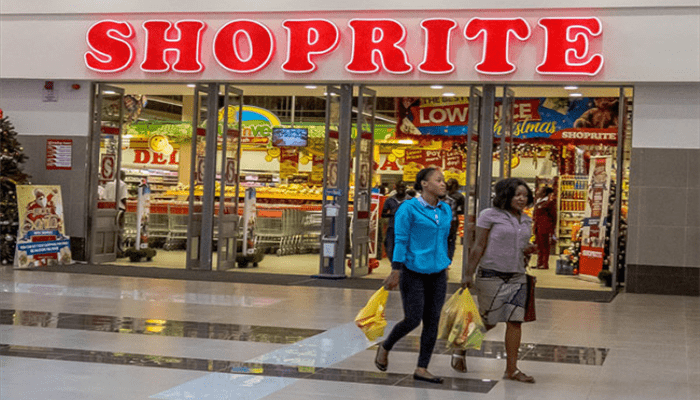When South Africa’s retail giant Shoprite first opened its doors in Nigeria in 2005, it symbolized a new era for modern shopping in Africa’s biggest economy. Bright lights, neatly stacked shelves, and air-conditioned aisles promised a break from the chaos of open markets. Within a decade, the brand had expanded to 25 locations across 13 states, supported by a massive distribution hub in Lagos that linked directly to local farmers.
At its height, Shoprite processed roughly 34 million transactions annually and provided over 2,000 jobs. To many Nigerians, the red-and-yellow logo represented sophistication and consistency—a dependable alternative to informal trading.
Two decades later, the excitement has dimmed. What began as a retail revolution is now a picture of decline. Across several cities, shutters hang half-closed, aisles sit half-empty, and staff whisper anxiously about the future.
From South Africa to Local Hands
In 2021, the parent company, Shoprite Holdings, decided to withdraw from Nigeria. A combination of foreign exchange shortages, dollar restrictions, and mounting operational costs made the business untenable. The brand’s assets were sold to Persianas Investment Limited, a Nigerian real estate and retail group owned by businessman Tayo Amusan.
Through a special-purpose company, Ketron Investment Limited, Persianas secured the franchise rights, promising to strengthen local partnerships, deepen Nigerian sourcing, and expand within five years. The deal was widely celebrated as a step toward local empowerment.
Persianas was no stranger to retail. The company had developed The Palms in Lagos—Nigeria’s first modern shopping mall—and later replicated the model in Ibadan, Enugu, and Ilorin. The retail arm, Persianas Retail, run by Ayo Amusan, Mr. Amusan’s wife and a former risk management specialist in London, already operated high-end fashion outlets like Lacoste, Puma, and Hugo Boss.
But four years after the takeover, Shoprite’s Nigerian chapter tells a different story. Stores are shrinking, shelves are thinning, and suppliers are struggling to get paid.
The Stores Go Silent
In Abuja, the once-vibrant outlets at Jabi, Apo, and Silverbird Mall now resemble echoes of their former selves. “You can’t even find something as basic as bread or milk anymore,” said Munira Lawal, a regular customer at Jabi. “It used to be a one-stop shop, but now you leave disappointed.”
At Apo, another shopper, Ahmed Abdulhadi, described the experience as “a gamble.” “Sometimes you waste your transport just to find empty shelves,” he said.
Staff across various locations share similar frustrations. “Customers are angry. We don’t have products, and management keeps saying new supplies are coming,” said a sales attendant in Apo, requesting anonymity.
The pattern repeats in other states. In Kaduna, a worker said the shelves had “looked this way for months.” In Akure, only one of ten checkout points was functional. Employees there confirmed that no new stock had arrived since the beginning of the year.
Even in Lagos—Shoprite’s oldest market—the flagship stores in Ikeja and Victoria Island have lost their shine. During a mid-day visit, the bakery shelves were bare except for a few loaves of bread. “We used to come here for everything; now even soap is out of stock,” said a shopper at the Victoria Island outlet.
Closing Doors and Mounting Debts
Several stores have already shut down. The Kano branch closed in January 2024, and the Novare Central Mall outlet in Abuja followed months later. In Lugbe, operations were suspended after generator failures crippled the store’s power supply.
Behind the scenes, suppliers complain of delayed or missing payments. “Shoprite owes a lot of vendors,” confirmed an executive from a major beverage supplier in Lagos. “Some of us haven’t been paid for months, and it’s affecting our production schedules.”
A former vendor, Dayo, shared a similar story online: “Before the takeover, Shoprite paid within seven days. After 2021, salaries and supplier payments stopped for months, leading to protests and resignations.”
Economic Pressures and Industry Shifts
Shoprite’s troubles mirror Nigeria’s broader economic challenges. Inflation hit a three-decade high in 2024, and the naira has lost over two-thirds of its value since mid-2023. Fuel prices have soared to nearly ₦1,000 per litre, and erratic power supply keeps generators running on costly diesel.
Many consumer goods firms—Unilever, P&G, GSK, PZ Cussons—have either exited or scaled back, blaming weak demand, FX scarcity, and shrinking purchasing power.
“The issue goes beyond inflation,” explained Felicia Awolope, senior analyst at Meristem Securities. “Consumer spending has collapsed. People are buying smaller quantities—sachets instead of tins—and that’s completely reshaping retail.”
Local competitors such as Justrite, FoodCo, Jendol, and Bokku have capitalized on the vacuum, growing quietly across major cities. Unlike Shoprite’s large-format stores, these brands offer smaller outlets that blend affordability with proximity.
“The big stores relied heavily on imports,” Awolope said. “Survival now depends on backward integration and local sourcing—models that cushion them from currency volatility.”
Africa-Wide Retrenchment
Nigeria isn’t Shoprite’s only setback. The company has been gradually withdrawing from several African markets, including Kenya, Uganda, DRC, Ghana, Malawi, and Madagascar, as currency instability and logistics costs erode profits.
Its most recent financial reports show that 91% of trading profit now comes from South Africa, where revenue rose from R171 billion in 2021 to R257 billion in just the first half of 2025.
“A Reset, Not a Retreat”
Despite mounting criticism, Retail Supermarkets Nigeria Limited, the current franchise operator, insists that Shoprite is not leaving the country.
“This is not a collapse; it’s a reset,” said Bunmi Adeleye, the company’s chief strategy officer. “We’re redesigning Shoprite to be more Nigerian—more affordable, more localized, and more efficient.”
The new approach, she explained, involves smaller stores, 80% local sourcing, private-label goods, and reduced energy costs. “We are building a model that fits Nigeria’s realities and prepares us for long-term success.”
For now, though, the shelves remain sparse, and shoppers continue to wonder if Shoprite can reclaim the sparkle it once brought to Nigeria’s retail scene—or if the sun has set on what was once hailed as the future of African modern trade.

